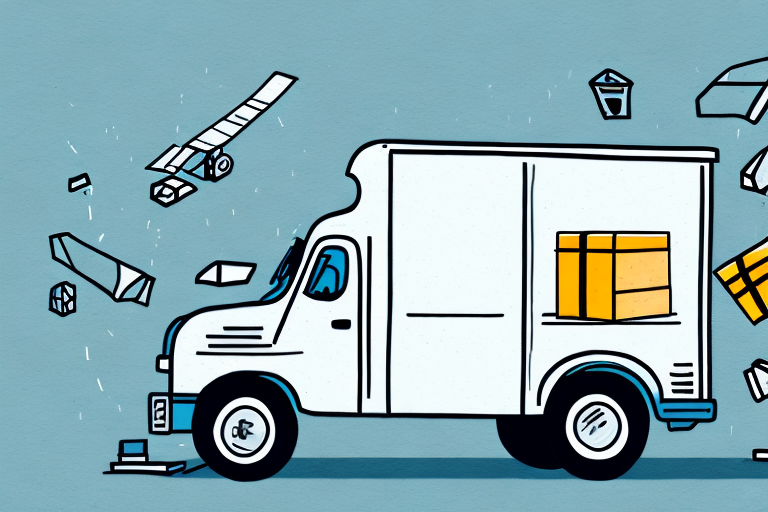Importance of Efficient Delivery Scheduling
Efficient delivery scheduling is pivotal for the success of any business involved in logistics, retail, or e-commerce. It not only enhances operational efficiency but also significantly impacts customer satisfaction and overall profitability.
Impact on Business Operations
Optimizing delivery schedules can lead to substantial time and cost savings. According to a 2023 Logistics Report, companies that implement efficient scheduling practices can reduce delivery times by up to 20%, resulting in lower operational costs and improved resource management.
Enhancing Customer Satisfaction
Timely deliveries are a cornerstone of excellent customer service. A study by ShipScience found that 85% of customers consider reliable delivery times as a key factor in their purchasing decisions. Efficient delivery scheduling ensures that orders arrive on time and in good condition, fostering customer loyalty and positive reviews.
Gaining a Competitive Edge
In a highly competitive market, businesses that excel in delivery efficiency stand out. By optimizing delivery schedules, companies can offer faster and more reliable services than their competitors. This advantage can lead to increased market share and a stronger brand reputation.
Strategies to Optimize Delivery Scheduling
Implementing effective strategies is essential to enhancing delivery scheduling efficiency. Below are some proven approaches:
Setting Realistic Delivery Expectations
Establishing clear and achievable delivery timelines helps manage customer expectations and reduces the likelihood of disappointment. This involves assessing your current delivery capabilities and communicating them transparently with customers.
Balancing Demand and Delivery Capacity
Aligning customer demand with your delivery capacity ensures that resources are utilized optimally. This balance prevents overloading delivery systems during peak times and underutilization during slower periods.
Prioritizing Deliveries Based on Urgency
Not all deliveries hold the same level of urgency. Prioritizing time-sensitive orders allows businesses to allocate resources effectively, ensuring that critical deliveries are handled promptly.
Data Analysis and Continuous Improvement
Regularly analyzing delivery data helps identify patterns and areas for improvement. Utilizing data analytics can uncover inefficiencies and inform decision-making processes to enhance scheduling practices continually.
The Role of Technology in Delivery Efficiency
Technology is a game-changer in delivery scheduling, offering tools and solutions that streamline operations and enhance accuracy.
Route Planning Software
Advanced route planning software optimizes delivery routes by considering factors such as traffic conditions, delivery windows, and vehicle capacities. This results in reduced fuel consumption and faster delivery times.
Real-Time Tracking and Visibility
Implementing real-time tracking systems provides up-to-the-minute information on delivery status. This visibility allows businesses to quickly address any issues that may arise, ensuring consistent delivery performance.
Automation and Artificial Intelligence
Automation tools and AI algorithms can predict delivery times, optimize routes based on dynamic conditions, and even manage inventory levels. These technologies enhance operational efficiency and reduce the margin for human error.
Emerging Technologies: Drones and Autonomous Vehicles
Emerging technologies like drones and autonomous vehicles have the potential to revolutionize delivery processes. These innovations can achieve faster delivery times, especially in remote or congested areas, and reduce reliance on traditional delivery methods.
Overcoming Challenges in Delivery Scheduling
Despite its importance, delivery scheduling presents several challenges that businesses must navigate to ensure efficiency.
Managing Unexpected Delays
Unforeseen events such as extreme weather, traffic congestion, or mechanical breakdowns can disrupt delivery schedules. Implementing contingency plans and maintaining flexibility in scheduling can help mitigate these disruptions.
Optimizing Delivery Routes
Efficient routing is essential to minimize delivery times and fuel costs. Utilizing GPS and telematics systems can provide valuable insights into route optimization, ensuring that deliveries are made in the most efficient manner possible.
Fleet Optimization
Maintaining an optimized fleet is crucial for reliable deliveries. This involves regular vehicle maintenance, investing in fuel-efficient models, and training drivers in efficient driving practices to enhance overall fleet performance.
Finding and Retaining Qualified Drivers
Qualified drivers are the backbone of any delivery operation. Offering competitive wages, benefits, and a positive work environment can help attract and retain skilled drivers, ensuring that delivery schedules are consistently met.
Measuring and Improving Delivery Performance
Continuous measurement and improvement are key to maintaining efficient delivery schedules.
Key Performance Metrics
Tracking metrics such as on-time delivery rate, delivery time accuracy, and cost per delivery provides valuable insights into delivery performance. For instance, achieving an on-time delivery rate above 90% is considered a benchmark for excellence in the industry.
Data-Driven Improvements
Analyzing delivery data enables businesses to identify bottlenecks and inefficiencies. Implementing data-driven strategies, such as adjusting delivery routes or reallocating resources, can lead to significant improvements in scheduling efficiency.
Customer Feedback
Incorporating customer feedback helps businesses understand their delivery performance from the customer's perspective. Addressing concerns and making necessary adjustments based on feedback can enhance overall delivery satisfaction.
Future Trends in Delivery Scheduling
The landscape of delivery scheduling is continuously evolving, driven by technological advancements and changing consumer expectations. Staying abreast of future trends is essential for maintaining a competitive edge.
Increased Automation
Automation is set to play a larger role in delivery scheduling, with advancements in AI and machine learning enabling more precise and efficient scheduling processes.
Focus on Sustainability
There is a growing emphasis on sustainable delivery practices. Businesses are adopting eco-friendly routing options, electric vehicles, and other green initiatives to reduce their environmental footprint.
Enhanced Collaboration and Data Sharing
Greater collaboration between businesses and their delivery partners, coupled with improved data sharing, can lead to more efficient and seamless delivery operations.
Integration of Advanced Analytics
Advanced analytics will become increasingly important in predicting delivery trends, optimizing routes, and making informed scheduling decisions based on comprehensive data analysis.
Conclusion
Efficient delivery scheduling is a critical component of successful business operations. By understanding its importance, implementing effective strategies, leveraging technology, and continuously measuring performance, businesses can optimize their delivery processes. Staying informed about future trends and overcoming operational challenges will further enhance delivery efficiency, leading to increased profitability and heightened customer satisfaction.




















